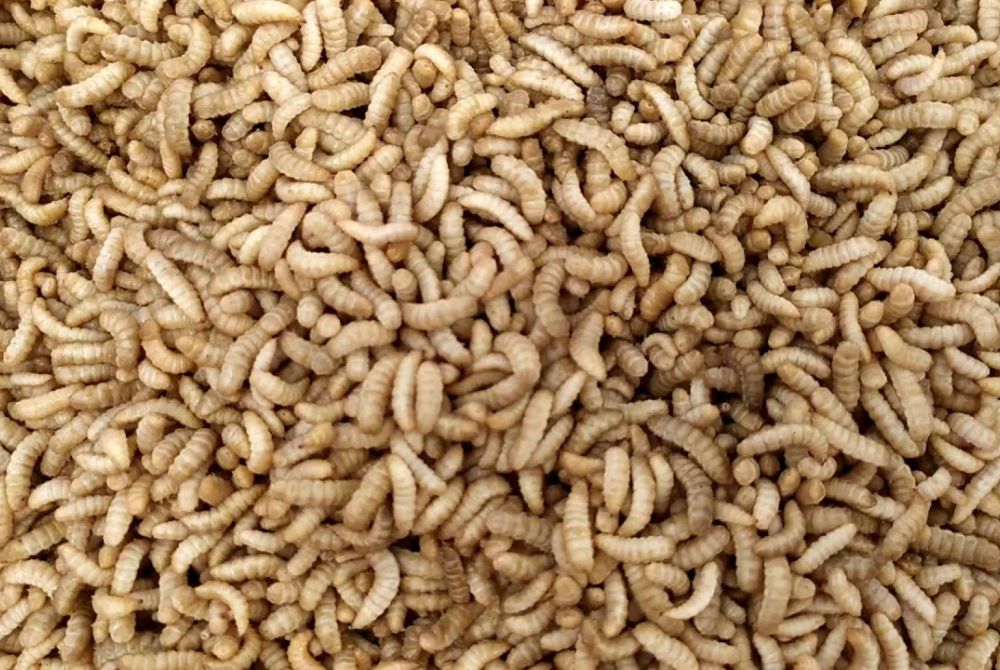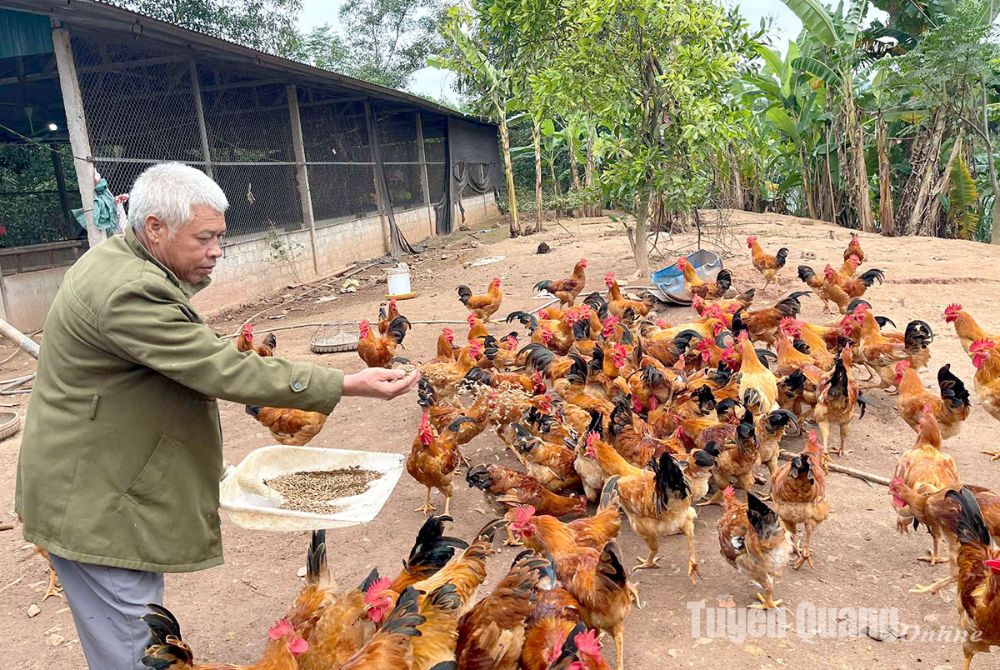Boost the production and use of biological pesticides
On November 2, in Ho Chi Minh City, the Ministry of Agriculture and Rural Development (MARD) organised a conference to develop the production and use of biological pesticides. The Conference aimed to evaluate the results achieved during the 02 years of implementing the program to develop the production and use of biological pesticides for 2021-2025, synthesising the difficulties and obstacles that propose future solutions.

Deputy Minister of Agriculture and Rural Development of Hoang Trung Commune spoke at the Conference.
In agricultural production, pesticides are essential supplies that protect and improve crop productivity and determine the value and quality of agricultural products.
Initial results
Pesticides are vital supplies in agricultural production. However, misusage can cause many unwanted consequences, affecting human health and the environment. Therefore, using bio-pesticides is one of the sustainable and proactive solutions in plant protection.
Speaking at the Conference, the Director of the Plant Protection Department, Mr Huynh Tan Dat, said that the use of biological pesticides in agricultural production brings many benefits, such as leaving less residue in agricultural products, Less affected, and safe for humans, the environment and the ecosystem, quickly decomposing in nature; Short quarantine period…
Over the program's two years, the agriculture sector has produced several positive outcomes. Initially, it enhanced awareness and responsibility of production and commercial organisations and individuals in producing and using bio-pesticides.
Our country currently has 810 types of bio-pesticides with 257 active ingredients, including biological pesticides that are microorganisms (about 13%), bio-pesticides of natural origin extracted from herbs (about 24%), and bio-pesticides that are biochemical (about 63%). These medications suppress the most dangerous pathogens on various crops. 85 of the 99 pesticide plants in Vietnam are bio-pesticide manufacturers.
In the last 03 years (from 2020-2022), the average total use of bio-pesticides across the country remained stable and increased from 16.67% in 2020 to 18.49% in 2022.
To support the initiative "Development of production and use of bio-pesticides," the Plant Protection Department signed a coordination commitment with 14 pesticide firms and the Vietnam CropLife Association. Using "Guidelines for safe and effective use of pesticides; Developing production and use of bio-pesticides in 2021-2025".
By the end of June 2023, the program will have taught 11,649 farmers in face-to-face and online formats. In addition, 335 training seminars were organised for 15,851 agents countrywide. Six of the 14 pesticide businesses involved in the initiative are dedicated to boosting production, extending scale, and improving biological chemical manufacturing capacity to raise the yearly average by 20- 25%.
Removing knots
Despite numerous excellent outcomes, the current manufacture and application of bio-pesticides have limits. According to the Conference, the agriculture industry needs policies to stimulate research, capital assistance, and investment in developing, commercialising, and using biological plant protection medications. Pesticide manufacturing heavily relies on foreign partners (copyright, raw materials, and technology), resulting in an unstable market.
The majority of bio-pesticides in the Vietnamese market are imported from outside. Production registration and testing procedures must yet be performed. The system of equipment and laboratories for bio-pesticide research and quality control must suit current demands...

Overview of the Conference on the development of production and use of biological pesticides.
Mr Nguyen Van Son, Chairman of the Vietnam Association of Pesticide Manufacture and Trade Enterprises, stated that authorities must evaluate regulations to boost the manufacture and usage of biological pesticides. Procedure for registering. Including a number of policies to encourage and incentivise organisations and businesses to invest in bio-pesticide production technology, such as assisting with receiving technology, borrowing capital, renting land for factories, and tax and fee incentives for product development.
Priority will be given to enterprises that invest in development and capitalise on benefits from domestic sources. Concurrently, augment and prioritise initiatives that help farmers use biological insecticides...
The goal of the agricultural sector is to increase the number of registered bio-pesticides by 30% by 2025, increase the number of pesticides used by 20%, and increase the model and area of pesticide use. Biological plants increased by 3-5% and 15% compared to today's enterprises innovating bio-pesticides technology.
After the Conference, Deputy Minister of Agriculture and Rural Development Hoang Trung said that in the coming time, the agricultural sector will review and propose developing specific policies to encourage and support organisations and individuals. Invest in developing the production and use of biological plant protection drugs; simplify administrative procedures. Maintain guidance on the use of biological pesticides in localities.
Furthermore, the agriculture sector must stimulate home manufacturing of bio-pesticides. Continue to enhance testing, do detailed and practical research on bio-pesticides, fulfil people's demands and tastes, and don't stop at testing. Maintain international collaboration, diversify investment resources, and create favourable conditions to attract local and foreign investment capital from various economic sectors to grow bio-pesticide manufacturing in Vietnam.
Source: The People from Vietnamese newspaper













